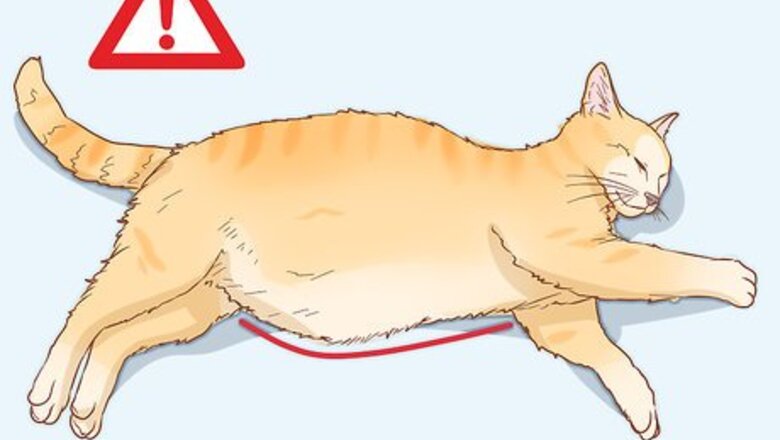
views
Considering Possible Causes
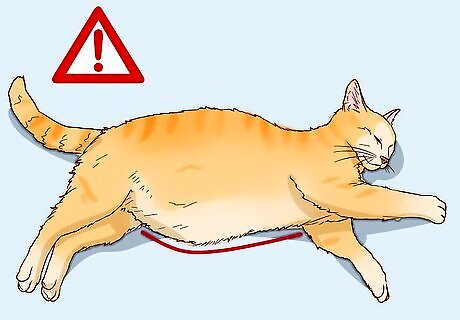
Look for signs of malnutrition. Cats who have malnutrition often have a distended belly. A distended belly may appear to be bloated or sticking out. It may look to have very little fat or muscle covering it. Malnutrition is common in cats that: Eat food prepared at home. Are kept on a vegan or vegetarian diet. Lack enough vitamin E, copper, zinc, and potassium. Eat food that contains a lot of vegetable oil.
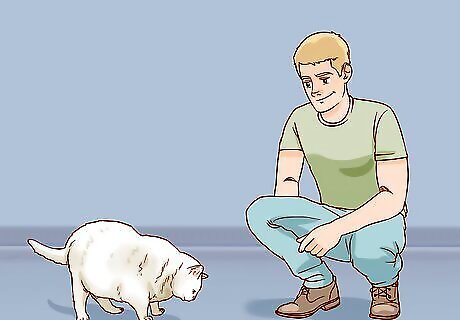
Observe to see if the cat is simply overweight. Typically, a cat will need about 30 calories a day per pound of weight. If your cat consumes more than this, they may become obese. Consult your vet and/or the nutritional information on the back of your cat food packaging. You can use a cat body condition score chart to determine if your cat is overweight, such as the one found here: https://www.wsava.org/sites/default/files/Body%20condition%20score%20chart%20cats.pdf.
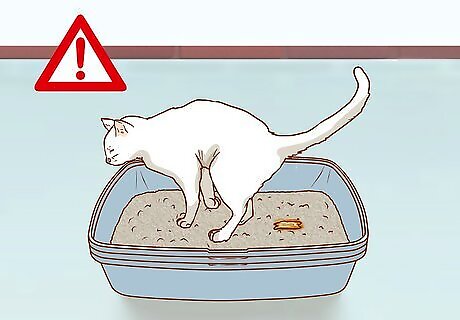
Check for signs of Feline Infectious Peritonitis (FIP). FIP is a potentially fatal condition that starts as a viral infection and is common in areas or households with a high cat population. In addition to a distended abdomen, diarrhea is one of the most common signs of FIP. FIP can be confirmed through blood tests that test liver enzyme levels, bilirubin levels, and globulin levels. Wet FIP can also be diagnosed by obtaining a sample of the abdominal fluid.
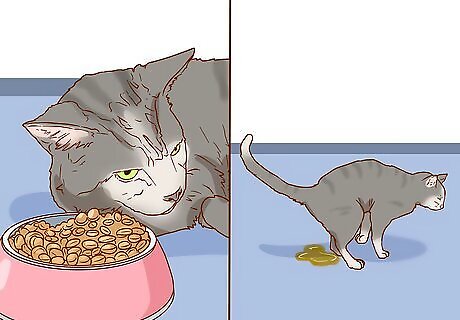
Look for signs of infection, virus, or parasites. There are a wide variety of communicable diseases that may cause a swollen abdomen in cats. While most cases are minor, some might lead to serious problems for the affected cat. Look for symptoms of: Pyometra, which is an infection in a female cat’s reproductive system. Pyometra may manifest as lethargy, lack of appetite, or frequent urination. Intestinal worms. The most common symptom of intestinal worms may be rice-like objects in your cat's fecal matter or around their anus.
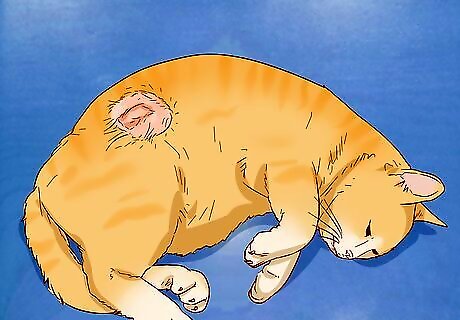
Identify signs of cancer or a tumorous growth. These are perhaps one of the most serious causes of a swollen abdomen in cats, and you should seek veterinary care immediately if you suspect it. Some of the most common symptoms of cancer or tumors are abnormal skin growths and/or loss of appetite.
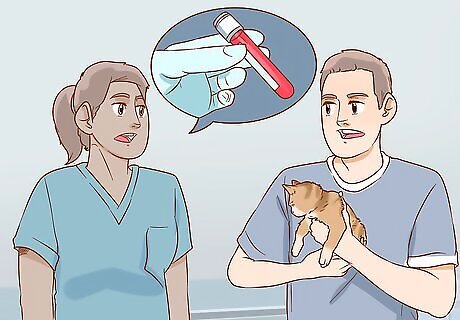
Look for signs of metabolic or digestive issues. Metabolic and digestive issues (like diabetes and colitis) may be one of the most common causes of swollen abdomen in cats. Common signs include change in appetite, weight change, and/or a decline in energy level. If you suspect your cat has a metabolic or digestive issue, you may need to have your vet run blood tests to confirm or rule out these conditions.
Consulting Your Veterinarian

Explain the timetable of your cat's swollen abdomen. Give your vet a sense of when and/or how quickly your cat developed a swollen abdomen. This is important information your vet will need when they diagnose your cat. Inform them if: Your cat developed a swollen abdomen overnight or over the course of several days. Your cat developed a swollen abdomen over the course of several weeks or months.
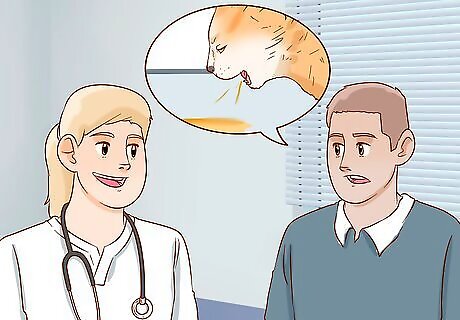
Discuss your cat's eating patterns. Your cat’s appetite is likely connected to their swollen abdomen. This is because an infection in the abdomen or other problems in the digestive system will impact whether your cat wants to or even has the appetite to eat. Let your vet know if your cat: Is eating less. Is eating more. Has a complete lack of appetite. Throws up after eating. Has been started on a new food recently.
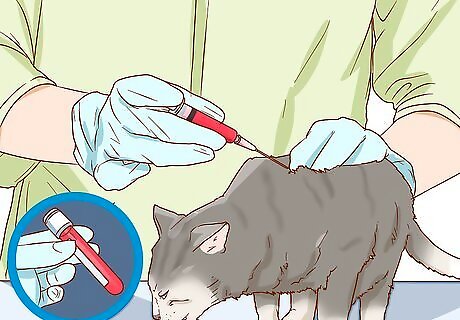
Allow your vet to run bloodwork. Bloodwork is essential in helping to arrive at a diagnosis about what is causing your cat’s swollen abdomen. Without bloodwork, your vet won’t have basic information about your cat’s immune system and more. Bloodwork may: Give your vet information about your cat’s immune system. If your cat has an infection, like pyometra, they will have elevated white cell counts.
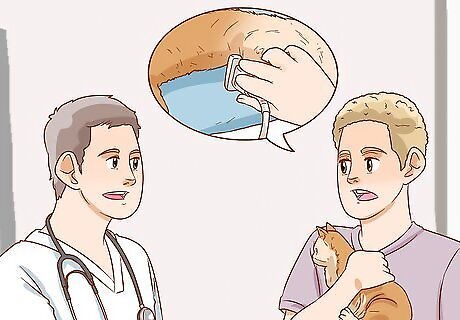
Ask your vet to run diagnostics. Take your cat to a board certified internal medicine specialist for an endoscopic exam and biopsy. The vet may have to run a variety of diagnostic tests to arrive at a proper diagnosis. Some diagnostics that might shed light on a swollen abdomen include: X-rays. An X-ray might help your vet locate any cancerous growths or infected organs. An ultrasound. An ultrasound will give your doctor a lot of information and may help rule out or confirm the diagnosis of cancer. In addition, it will let the vet know if there is an accumulation of fluid in or around the abdominal cavity. A biopsy. If your vet locates a growth or infected area within your cat’s abdomen, they might need to take a biopsy.



















Comments
0 comment